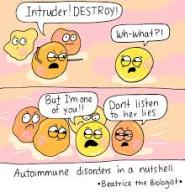The positive side of Crohn’s disease is often very hard to see. But I promise you that there is one.
While I never enjoy being in pain, as a young women who has recently entered graduate school, I have noticed ways that my illness has encouraged me to change for the better.
Organization
Someone may not recognize this when walking into my bedroom, but when it comes to school, I am the person who actually rewrites their notes after class. I am the girl with the colour-coded calendar, the one to ask when something is due. My computer folders go more than 5 levels deep.
I have to count on my over-organization to save me on the days when I have no brain. When my stomach is killing me, the worst feeling is the world is being unable to find the bottle of pain killers that actually sort of work. I’ve always been a detail-oriented person that studies hard, but these ‘extra’ organizational skills allow me to compensate for the mistakes I make or tasks I simply can’t accomplish on days I’m unable to walk and stuck in bed.
One moment is great and the next I’m rushing to emerge. Having a chronic illness really forces you to be thoughtful about not just what the next day looks like, but what the next week looks like. That way, if you have a bad day, you don’t screw yourself over. As tiring as it can be, there is no procrastination allowed when you don’t know what the next moment holds.
Adaptability
I carry around an “emergency” kit with writing that states ‘super powers inside’ written on it. This allows me to adapt the best that I can to whatever my day could throw at me. If I need to stay a little longer than I thought, I have food I need. More walking than I expected? I have a heating pad in my bag. Flexibility is key when planning my day or my week.
I have also learned some odd but effective strategies to get work done when its an off day. For example) sometimes I switch the color of pen every sentence. This makes my notes look like an oddly highlighted rainbow – but it keeps me engaged. Sometimes I have to work in front of the TV to stay awake. Its not the most efficient way to work, but its better than nothing. And sometimes you just have to get through. You might do one assignment in an hour one week, but it might take you several the next week. Allowing your brain, and your body, to work at its own pace is undervalued. This is something I’m still working on.
Understanding
I pretty much have two modes: on and off. And when I am “on,” I sometimes expect everyone to work at the same pace I do, which is not only unrealistic but un-compassionate. I am getting better at remembering that it may be my “on” day and someone else’s “off” day. And when someone is having an off day, I want to be there for them.
However, I don’t like when objects take up any more of my limited energy supply. When I am exhausted and hurting and my printer decides not to work, I have a tendency to blow up. Similarly, I used to get frustrated by my own mistakes very easily, assuming I should just work harder. However, chronic conditions make you susceptible to all sorts of different errors, mistakes or inefficient processing. Both the printer and I are trying our best, and I am realizing now that best might be different depending on the day.
Now I recognize that for many individuals, chronic conditions do not offer any positives. But I urge you to consider the positive changes that result from your health challenges. Maybe you have cut off toxic relationships that were too much work. Maybe you have made a new connection that you never would have been before. Maybe you inspired or advised another person on how to handle the challenges of their situation. While it may not fix the underlying condition, it can’t hurt and hey – it might even help.



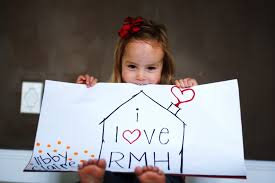
 ntly, I’m sitting in London patiently awaiting the clock to strike 3:15pm so that I can no longer feel faint and short of breath. After this I’ll put on a mask because my immune system will be close to depleted and I’ll get a ride back home and spend most of the day laying on the couch with heating pads to help my joint pain and hoping I don’t get sick.
ntly, I’m sitting in London patiently awaiting the clock to strike 3:15pm so that I can no longer feel faint and short of breath. After this I’ll put on a mask because my immune system will be close to depleted and I’ll get a ride back home and spend most of the day laying on the couch with heating pads to help my joint pain and hoping I don’t get sick.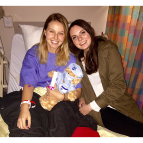
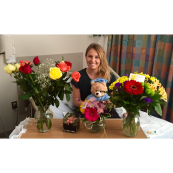
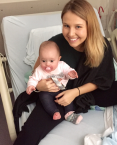
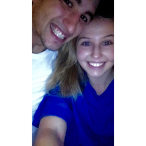
 We’ve all struggled with something in our lives – many of us still are. Many struggle much more than I do in regards to health and I’ve come to realize that I need to ask myself ‘how can I be the healthiest, happiest, most whole version of myself while living with Crohn’s disease?’ I try to align my actions with that question everyday and continue to live the best version of my un-normal life.
We’ve all struggled with something in our lives – many of us still are. Many struggle much more than I do in regards to health and I’ve come to realize that I need to ask myself ‘how can I be the healthiest, happiest, most whole version of myself while living with Crohn’s disease?’ I try to align my actions with that question everyday and continue to live the best version of my un-normal life. that at the age of 13 were just pre-menstrual cramps. But after constant nausea and feeling tired all the time (I’m not joking, I would wake up and ten minutes later need to take a nap) I finally decided that it was time to get answers – or at least a different perspective. It took 6 long months of three doctors collaborating tog
that at the age of 13 were just pre-menstrual cramps. But after constant nausea and feeling tired all the time (I’m not joking, I would wake up and ten minutes later need to take a nap) I finally decided that it was time to get answers – or at least a different perspective. It took 6 long months of three doctors collaborating tog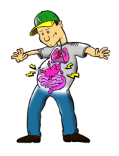 sts of many systems – one being the digestive system. We all have one. Mine is just… what’s the best way to put this? Mine’s just hella pissed off at itself!
sts of many systems – one being the digestive system. We all have one. Mine is just… what’s the best way to put this? Mine’s just hella pissed off at itself!